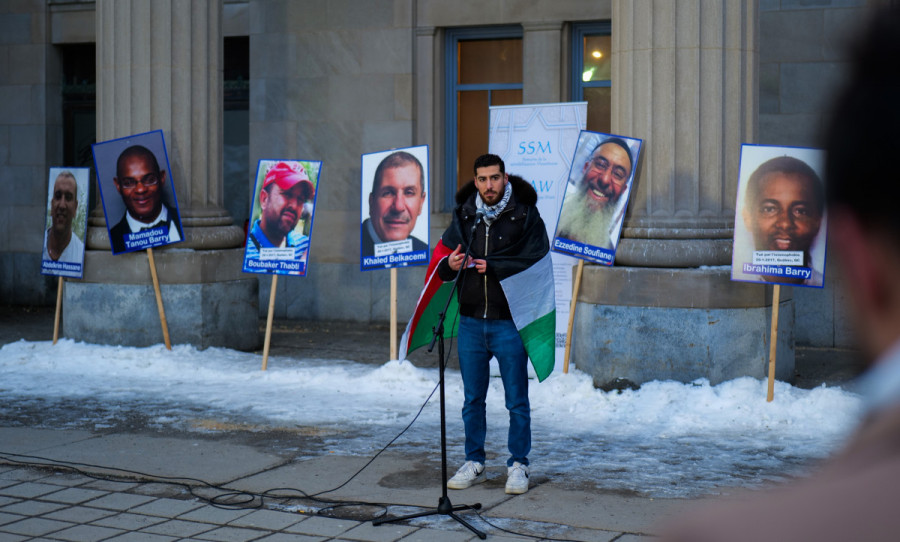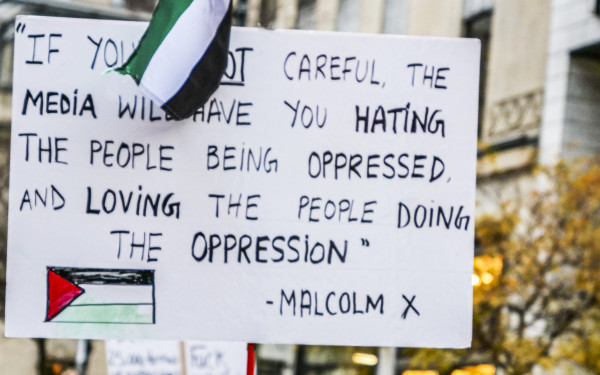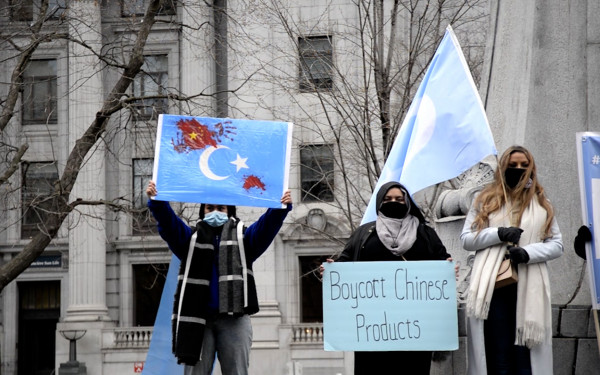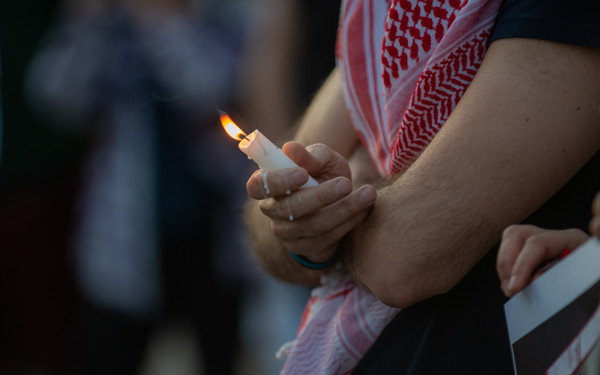Vigil remembering those lost in 2017 Quebec Mosque shooting
Seven years later, Islamophobia in the province has not improved, advocates say
On Jan. 29, dozens gathered in the cold at Parc metro station in remembrance of the lost lives of Azzeddine Soufiane, Aboubaker Thabti, Khaled Belkacemi, Abdelkrim Hassane, Ibrahima Barry and Mamadou Tanou Barry. They were killed in the 2017 Islamic Cultural Centre shooting.
Organized by the Muslim Awareness Week association (MAW), the vigil commemorated the seventh anniversary of the massacre.
Organizers spoke in front of six posters of the victims whose lives were brutally taken. The organizers spoke out against Islamophobia in the province, the remembrance of lost Muslim lives, and solidarity with Palestinians and Arab diasporas.
“We are not here to victimize ourselves,” Samia Laouni, co-founder of MAW explains. “We are here for duty of memory towards the lost lives of the six Muslims, towards the people who were left handicapped until the end of their lives because of it, and towards the orphans that were left without a father simply because he was Muslim.”
On Jan. 29, 2017, Quebec bore witness to one of the deadliest mass shootings in Canadian history; along with the six Muslim men who were killed, five men were critically injured by gunman Alexandre Bissonnette at the Islamic Cultural Centre of Quebec City.
The gunman entered the mosque after evening prayers had ended, shot the men with his pistol, fled in a car and turned himself in 20 minutes later. He pleaded guilty in 2018 with six counts of first-degree murder and six counts of attempted murder, but was not charged with terrorism-related offenses.
Religious tension in Quebec has always been contentious, particularly the visibility of religious symbols within the province. Since the early 2000s, provincial governments have implemented bills seeking to “regulate” them.
Laouni believes that the federal government does not do enough to incite concrete change against the problem of Islamophobia within the country. “I get the feeling that whatever they’ve done is a mask, and their words do not follow their actions.”
Mayada Elmousawi and Zainab Ridha, a mother and daughter who attended the vigil also expressed their disappointment with the government. “We need their collaboration and we need their help,” they said. “We ask for a lot more work to be done to help fight Islamophobia.”
In 2019, Bill 21, an act “respecting the laicity [secularism] of the State”, was enforced through the use of the notwithstanding clause, officially prohibiting the wearing of religious symbols in public service. The provincial legislature of Quebec decided that State laicity was of fundamental importance.
Research has shown that controversial secular laws such as Bill 21 are connected to the increase in hate crimes throughout the province. Ontario and Quebec are provinces in Canada with the greatest number of Islamophobic crimes. Most muslims in the country live in these provinces. According to Angus Reid, Islamophobia is most intense in Quebec.
Ridha perceives this bill as a form of Islamophobia and finds it impedes on her freedom of religion. “They’re trying to limit what we can do, if I wanna follow my religion, I think I should be able to do it freely,” she expressed. “I’m not harming anyone, I’m not disturbing anyone.”
Reporting has shown that job applicants whose family names suggest an Arab background are up to two times less likely to be hired.
Since the events of Oct. 7, 2023, hate crimes and Islamophobic acts have skyrocketed, exceeding levels seen after 9/11. There has been a 1,300 per cent increase in Islamophobic incidents since Oct. 7, according to the National Council of Canadian Muslims.
“Our community has suffered a lot and continues to suffer with the current crisis in the Middle East,” said Salam El-Mousawi, another co-founder of MAW. “We think it’s important to shed light on the root cause of these issues and hope that everyone comes together to fight against injustices of all people.”
This article originally appeared in Volume 44, Issue 9, published January 30, 2024.







